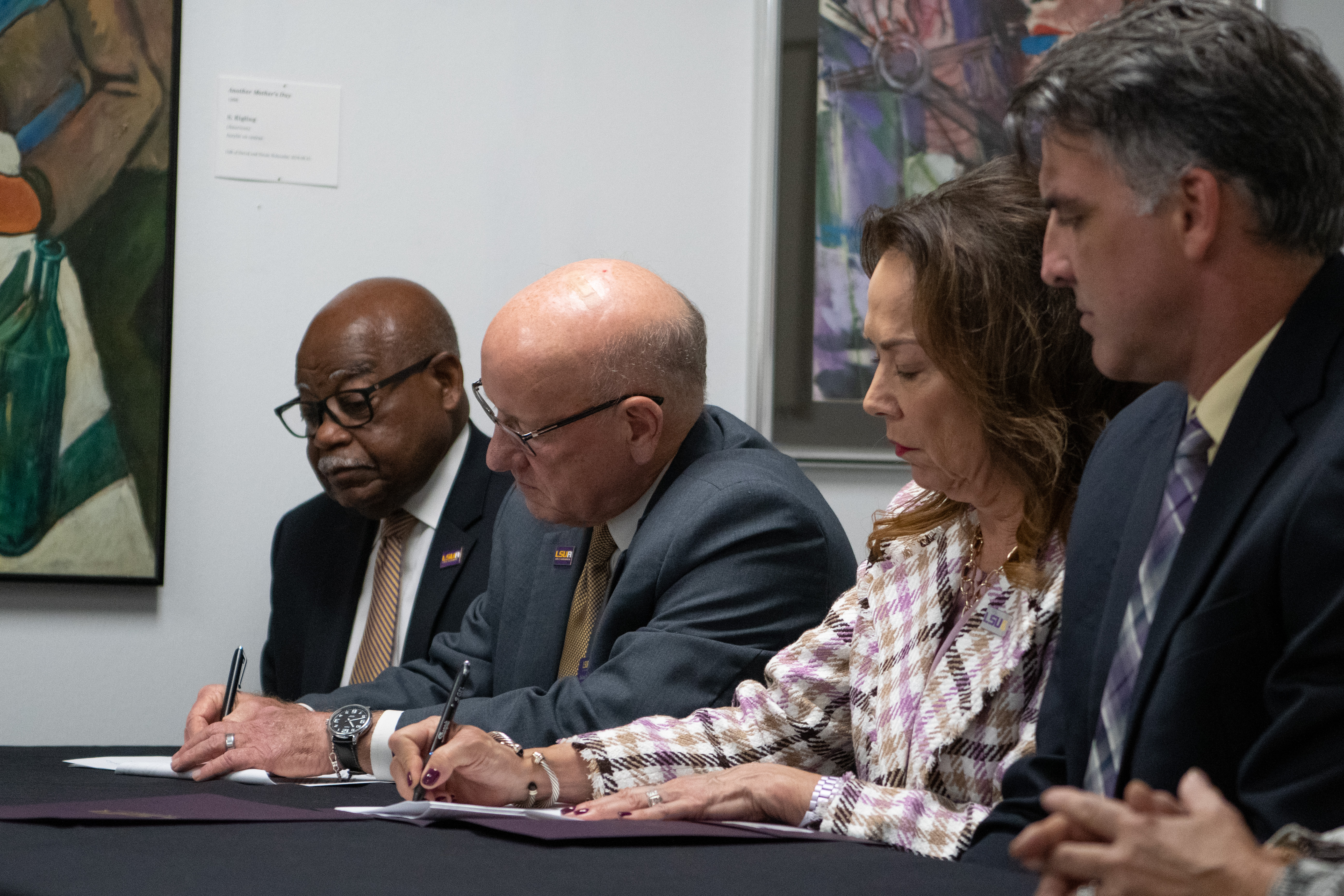Plagiarism
Plagiarism is defined as “the wrongful appropriation or purloining, and publication as one's own, of the ideas, or the expression of the ideas (literary, artistic, musical, mechanical, etc.) of another" (Oxford English Dictionary Online). It is a serious offense against intellectual property and human integrity, yet it is easily avoidable.
Examples of PLagiarism:
- Copying test answers or homework
- Selling/giving work to another student to use for an assignment
- Turning in work you didn’t write/create
- Leaving out a source you used
- Not using quotation marks for quotes
LSUE recognizes that some plagiarizing is inadvertent or unpremeditated. Accidental plagiarism, though serious, is a lesser offense than deliberate cheating.
Sanctions
These are the minimum punishments as listed in the Code of Student Conduct. Circumstances may allow or require other penalties, as determined when each case is examined. Please note that both dropped and failed courses may negatively impact on financial aid availability.
Unpremeditated Plagiarism
Not planned out ahead of time; spontaneous; spur of the moment.
First offense: academic probation; dropped from course.
Second offense: separation for one year.
Third offense: expulsion.
Premeditated Plagiarism
Preplanned; delibarate.
First offense: separation for one semester.
Second offense: expulsion.
How to Avoid Plagiarizing
During tests: don't use crib sheets, notes, text messages, facebook, or any other outside information unless specifically allowed by the instructor.
In writing papers: CITE ALL SOURCES!
Learn the differences between quotations and paraphrases.
- Quotations: their words and their ideas; must use quotation marks and cite source
- Paraphrases: your words and their ideas; must cite source
Have a copy of all sources on hand when doing an assignment.
Write down or copy all needed citation information.
- Author
- Book or article title
- Source: For a book, city and publishing company. For an article from a journal: the journal's title, volume number, and page numbers of the article. For an article from a reference book: the reference book's title, volume number, and page numbers of the article.
- Date
- Name of database for electronic information
The format will vary, so familiarize yourself with the required citation style before starting your search. Look at examples; ask your professor or the reference librarian if you have any questions.
Citation and Documentation Guides
The most frequently used guides for citing information are MLA Handbook for Writers of Research Papers (MLA) and Publication Manual of the American Psychological Association (APA). MLA is used primarily for English, history, and other liberal arts classes; APA is used for social sciences, including communication, psychology, and nursing. Copies of these are on the reference shelf and on reserve at the library. Always ask your professor which style to use for your assignments.
Ref Gibaldi, Joseph. MLA Handbook for Writers of Research Papers.
LB 2369 7th ed. New York: MLA, 2009.
G53
2009
Ref
BF 76.7 Publication Manual of the American Psychological Association
P83 (2010). Washington, DC: American Psychological
2010 Association.




